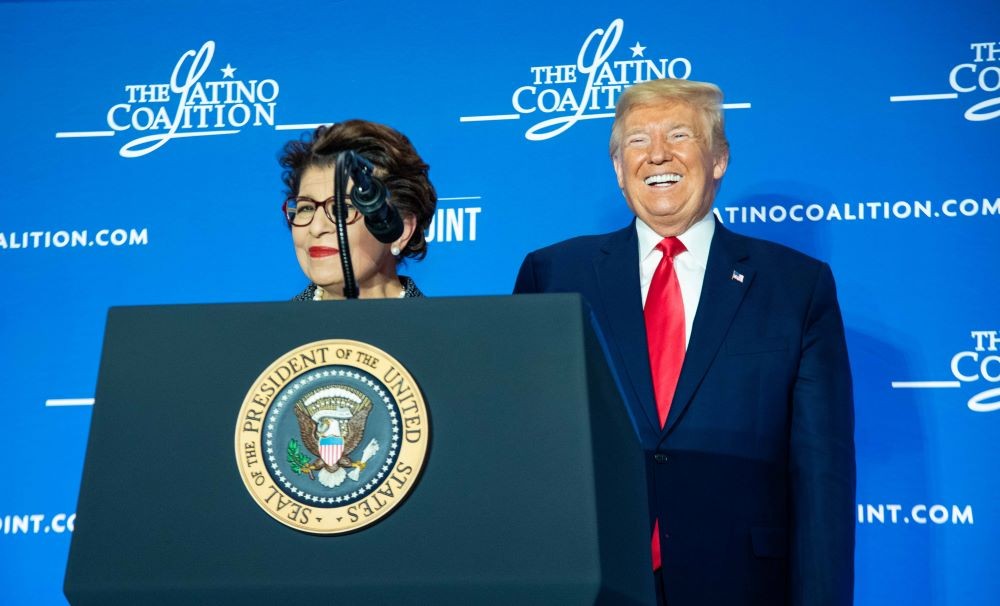Planning an event for March 4 as the COVID-19 virus was beginning its initial arc in the U.S. was a challenge unlike any Innovate Marketing Group has ever undertaken.
The guest list for The Latino Coalition’s Legislative Summit in Washington, D.C., represented to top echelon of the U.S. government: President Donald J. Trump; United States Secretary of Housing and Urban Development Ben Carson; United States Secretary of Education Betsy DeVos; and Administrator of the Small Business Administration Jovita Carranza.
The following coronavirus risk management strategies were some of the health and safety precautionary measures we took, and will continue to take in the future, to make sure event guests and clients were kept informed and felt safe and reassured:
[Related: Inspiring Stories from the Meetings Industry During the Coronavirus Crisis]
1. Stay Calm and Stay Alert
We encouraged our clients and guests to follow reliable sources regarding necessary health and safety precautions.
The Centers for Disease Control and Prevention (CDC) and the World Health Organization (WHO) were and are our go-to sources when seeking safety advice regarding this virus to avoid any unnecessary event cancelations or postponements.
2. Venue
Check with your venue to ensure they are taking the necessary precautions to keep your guests safe. Ask what they are doing to create a safe and sanitary space for your event attendees.
Examples include implementing additional training for staff, working with their local health department, adding additional signage with sanitation reminders, and having extra sanitary supplies on hand for event staff, such as face masks, soap, sanitizer, tissues and routinely deep cleaning and disinfecting their public areas and facilities.

Photo: The Latino Coalition’s Legislative Summit in Washington, D.C., was held just as the coronavirus outbreak was beginning in the U.S.; Credit: Innovate Marketing Group
3. Focus on Prevention
Implement extra hand sanitizing stations at your event, communicate with your guests regarding a no-handshaking policy to avoid community spread, and provide disposable cutlery instead of reusable silverware.
[On Topic: COVID-19: Complete List of Coverage]
4. Virtual Events Opportunities
What we are doing for some of our clients is offering them an alternative to in-person live events—virtual events—whether it’s via a live stream or pre-recorded videos. It’s not a new technology, but now it’s increasingly being considered as an alternative, or augmentation, for live events.
5. Communicate Concerns Beforehand
Encourage attendees who are feeling ill or may have concerns regarding their personal health to stay home and refrain from attending the upcoming event. In the event that a visibly ill individual, staff or attendee (symptoms include coughing, sneezing, having trouble breathing) does attend the event, make sure to have a designated isolated space to separate the individual from the rest of the guests. Establish procedures to help these individuals leave the event as soon as possible.
Read Next: Coronavirus Risk Management Tips for Meetings and Events
 About the Author: Amanda Ma is the founder and CEO of Innovate Marketing Group, an award-winning event and experiential marketing agency based in Los Angeles. Innovate Marketing Group is known for producing remarkable corporate events by providing fresh ideas, infrastructure and logistics—a one-stop solution from concept to execution.
About the Author: Amanda Ma is the founder and CEO of Innovate Marketing Group, an award-winning event and experiential marketing agency based in Los Angeles. Innovate Marketing Group is known for producing remarkable corporate events by providing fresh ideas, infrastructure and logistics—a one-stop solution from concept to execution.






